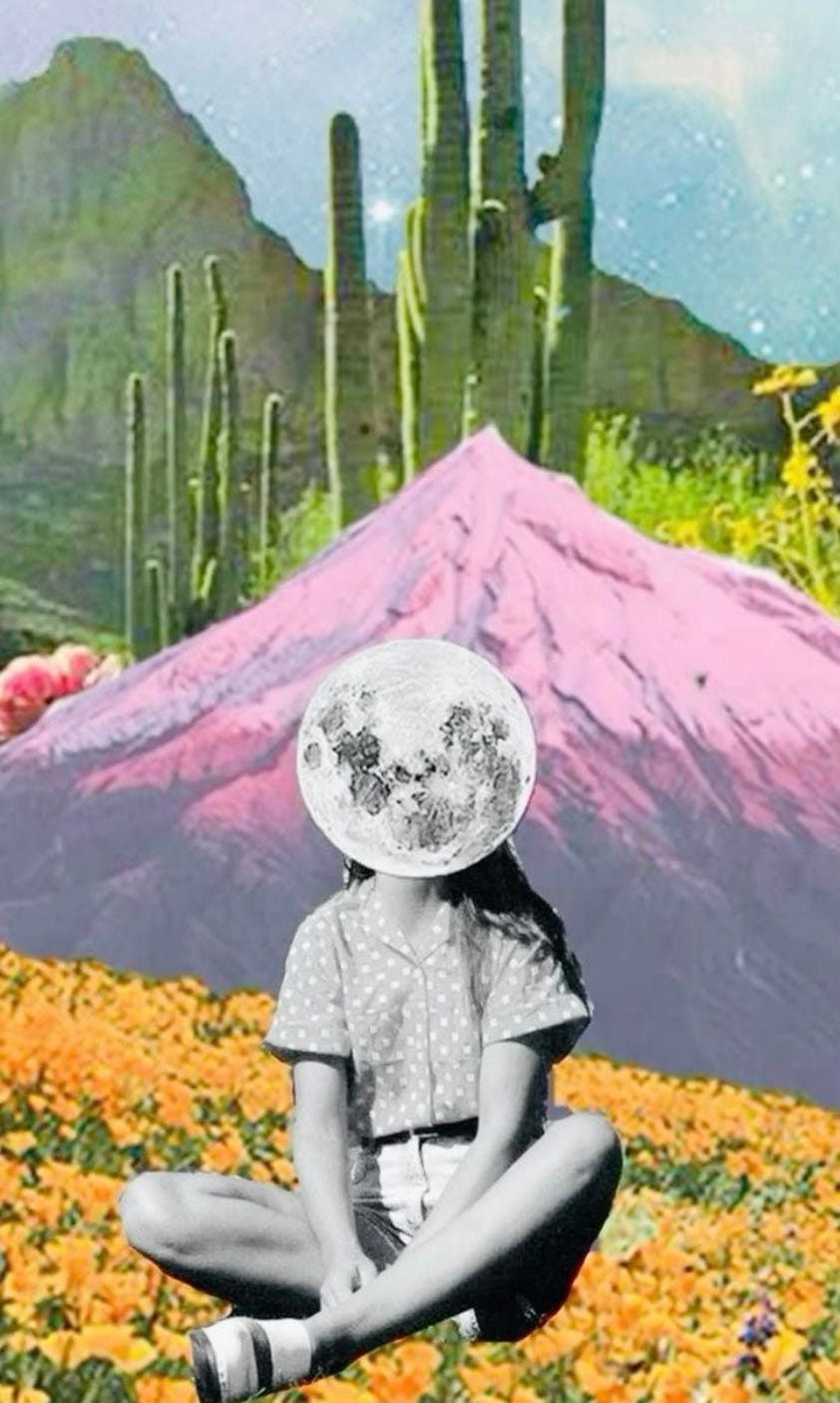Should we be stockpiling canned corn? Moving to the hills?
Nope, prepping is not the answer. Here's why... (part 2 of Chapter 15).
This is the second part of Chapter 15, Simplify, in which we get to some guts of what collapse demands of - and offers - us. This chunk covers some pragmatics - what do we actually do now that growth can no longer propel us?
How do we live? Do we prep?
If you’re new here you can start at the beginning of the book and navigate around the previous chapters using this Table of Contents. The audio version for both Part 1 and Part 2 (today’s post) is at the bottom, available only to paid subscribers. Ditto the conversation in the comments section where we workshop things together in real time.
Join this book writing project, if you haven’t already, in just a few clicks:
<Previous Chapter | Table of Contents | Next Chpater>
“You can’t take it with you when you’re gone.”
- My grandmother
*
“Things!
Burn them, burn them! Make a beautiful fire!
More room in your heart for love, for the trees!
For the birds who own nothing—the reason they can fly.”
- Mary Oliver, Felicity
*
Q: Should I be stockpiling. Should I be prepping? Homesteading?
A video that went viral last year asked:
“So is everyone else’s friend group talking about buying some land and having a homestead together where everyone grows separate crops, [where] we can all help each other out and have a supportive community, because our society that we live in feels like it’s crumbling beneath our feet?”
We’re not the only people asking these kinds of questions. Here are some you lot have been asking along the way:
Can we use [this] consciousness to prepare ourselves? A huge question for every family is housing — do you tie yourself to one region and buy a house when you’re not sure the weather will be liveable? How does one plan for a family’s financial future? Can we trust banks in such a future? And how can we prepare our children?
I find that relating to others involves a yo-yo shift between being in the collapse-aware worldview where I can’t relate as well to those around me, and then shifting back to my “real life” and winding up thinking and doing more mainstream “normal” stuff (although for me, honestly, it’s still not very mainstream. It’s mostly a shift to focusing on “just living” rather than “trying”). So my question is “How do I deal with the yo-yo between worlds?”
“Does anyone else feel that by accepting collapse is happening and inevitable and losing hope that "they" will fix it, actually feels like permission to buck the systems that aren't working or aren't good for us? To stop conforming maybe or just feeling more of a sense of urgency to do things differently?”
*
I was talking with my Dad (
on Substack if you want to say hello in the comments!) a while back. He’d been repainting the lounge room and was putting things back in place; the situation in Gaza had just sunk to some new hellish low. “Sass,” he said, “do we even bother to hang pictures anymore?”*
Becoming collapse-aware is to open fully to the absurdity of life. What is the point now if “real life” is no longer what it seems? How do we live our allotted 80-odd years on this precious planet? The journey is raw and exposing, and it can feel quite despairing when we’re programmed (by the neo-liberalism system) to believe that of course there is a solution and that we, as a lone individual, should be able to find it. The impossibility of the task, of course, sends us into a paralysed wallow, lacking the joie de vivre to decorate a wall, what with the grief and shame that we have to carry, too.
But something wonderful happens when we fully allow ourselves to go deeper into the absurdity, when we bravely - and so very messily - feel into the rawness and loneliness of having all the stuff that we thought created meaning and direction get pulled out from under us (you know, the bullshit job, the shopping mall missions, the retirement savings plans).
I find that this process forces me to get down to essences. What remains? How do we “do a day” without the (albeit false) buttressing we used to (unconsciously) lean on, but with a blank slate, an open field of possibility? Or, as I have regularly asked guests on my Wild podcast for almost three years now, “What is left if we lose it all?”
Just in the feeling so raw, stripped and lonely, and by being forced to ask these different kinds of questions (they surface without having to look for them, right?), my whole existance is turned towards what I can only call a brightness. Indeed, it feels like something is making sense, per the thread that keeps weaving through on this journey. For me, it feels like a profound (and sad) belonging. And that brightness? It’s the brightness and lightness (and the eerie relief) of a truer possibility. I can feel myself leaning towards it and my body tangibly relaxing.
Could this be beautiful? Could this be lighter? Could there be more ease?




